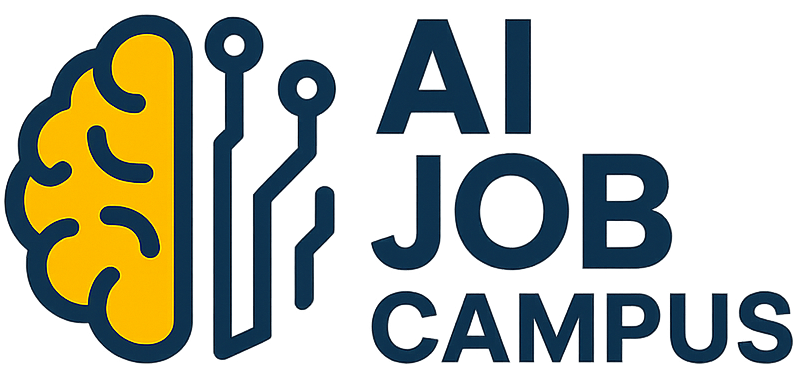🚀 Most In-Demand AI-Related Job Skills Employers Want in 2025
The New Hiring Reality: Why AI Skills Are Now a Job Market Essential
In 2023, I started noticing a shift that at first seemed subtle — but quickly became impossible to ignore: employers were no longer looking only for strong technical specialists. They wanted professionals who could work side-by-side with Artificial Intelligence (AI).
What seemed like a passing trend became, by 2024, an absolute requirement for standing out in the job market.
Today in 2025, it’s not just about knowing how to code or manage databases — AI-related skills are now a baseline requirement for landing the best opportunities. From startups to Fortune 500 companies, job postings frequently list generative AI tool mastery, AI model integration, and ethical AI implementation as must-haves.
💡 Key Insight: AI isn’t replacing humans — it’s redefining how we work.
When I first saw job descriptions including “Prompt Engineering” or “AI-Powered Analytics” alongside traditional programming languages and Agile methodologies, I knew I had to upgrade my skill set to stay competitive.
Employers now value hybrid profiles — professionals who understand the language of technology but can also navigate human and strategic contexts. AI skills have become career multipliers and a key differentiator against candidates who have only technical or only business backgrounds.
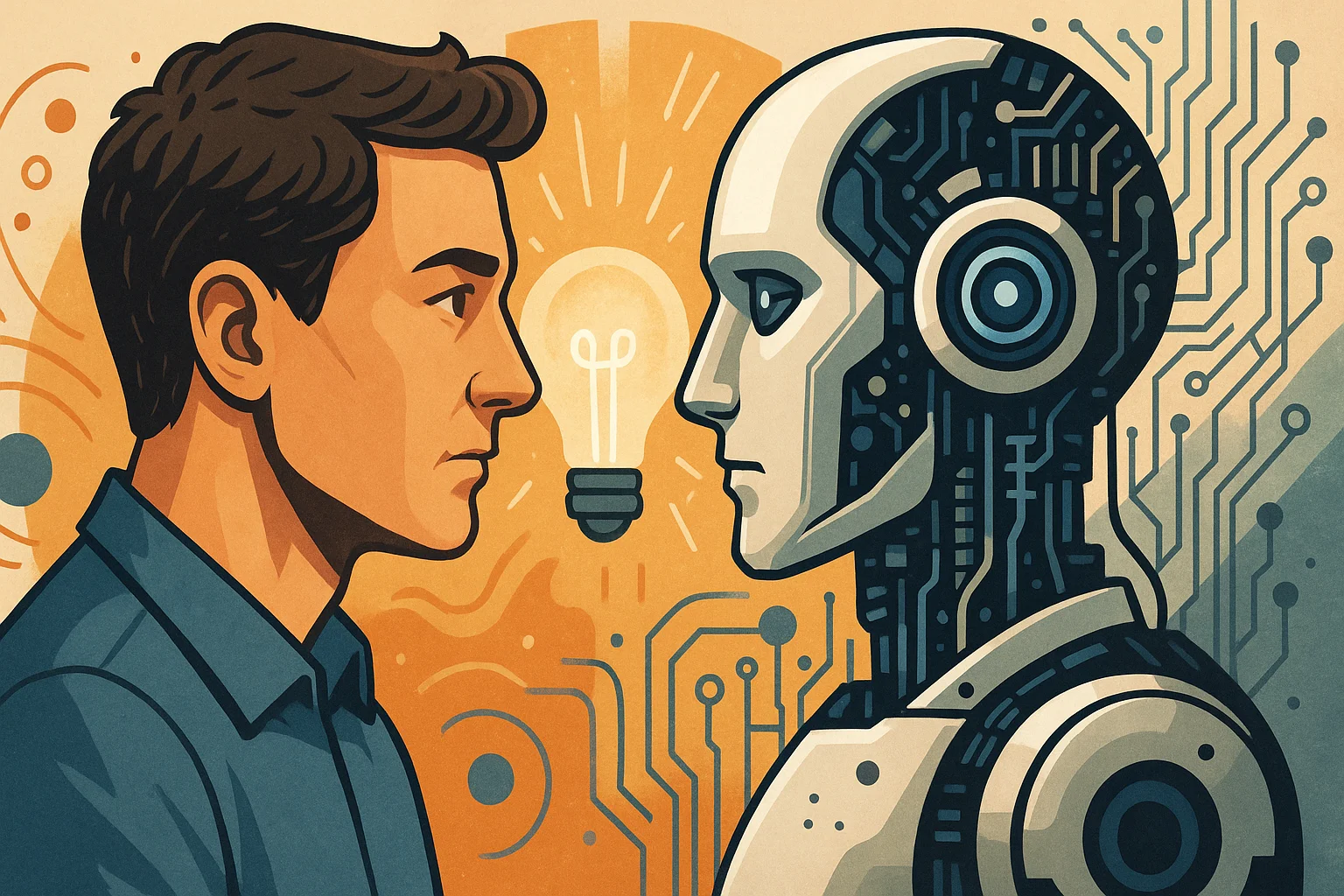
Core AI-Related Job Skills Employers Consistently Demand
After researching job descriptions, industry reports, and trend studies, the same skills appeared over and over:
1. Prompt Engineering Mastery ✍️
In the age of generative models, the ability to interact with AI to produce precise, valuable results is as important as writing clean code.
In my own work, mastering effective prompt creation paired with creative problem framing allowed me to solve complex problems faster and with fewer iterations.
2. AI-Powered Data Analysis 📊
No longer is Excel or SQL enough — now, tools like ChatGPT, Claude, or Gemini enable near-instant data processing and actionable insights.
This not only saves time but improves strategic decision-making across industries.

3. AI Model Deployment & Integration ⚙️
Understanding how to deploy and integrate AI models into existing systems — from connecting APIs to configuring production environments — is critical for real-world projects.
4. Ethical AI Decision-Making ⚖️
With increasing focus on AI ethics and responsible AI, employers want assurance that systems avoid bias, protect privacy, and follow compliance standards.
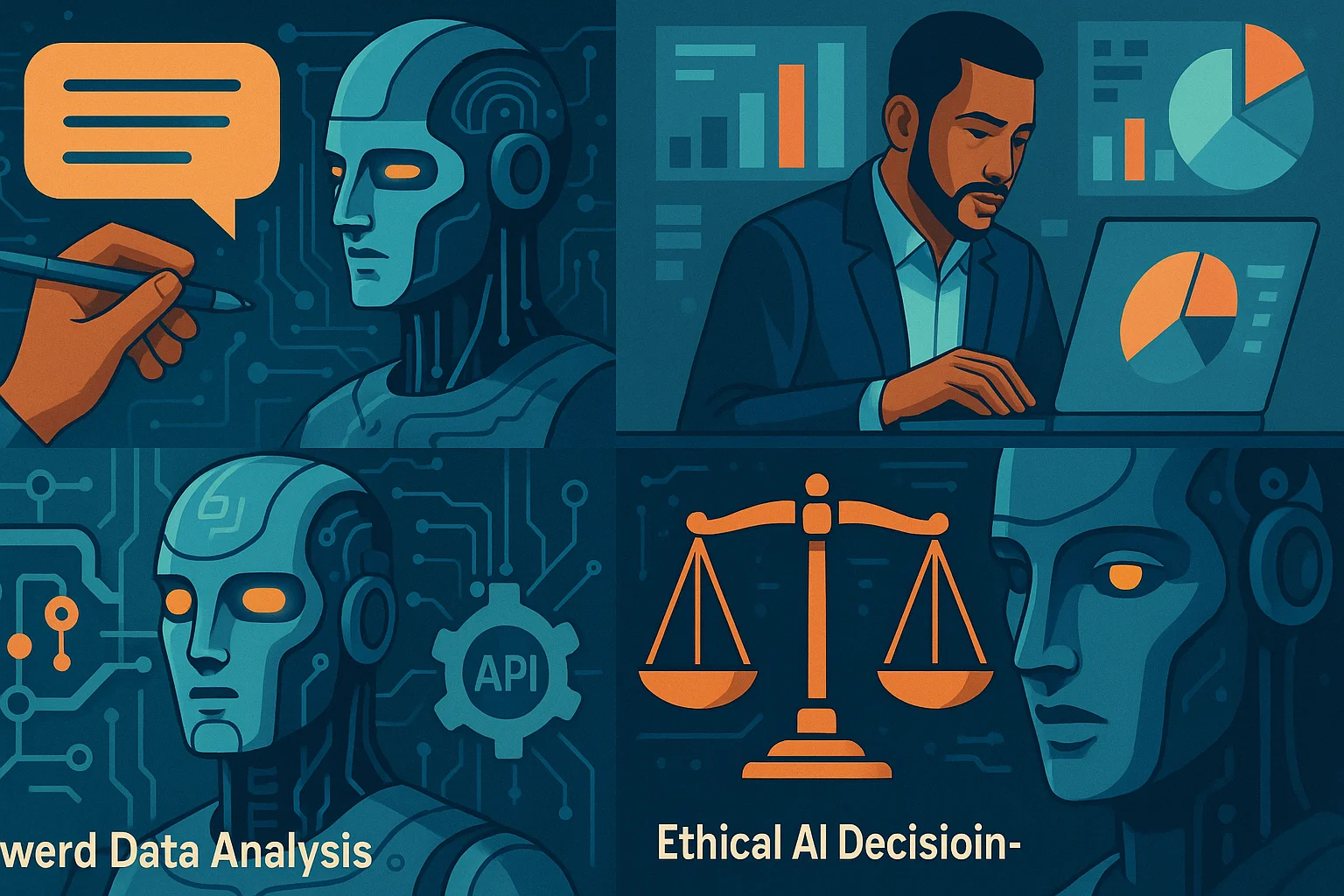
Emerging AI Skills Defining Careers in 2025 and Beyond
According to LinkedIn’s Future of Work Report, the next wave of in-demand AI skills includes:
-
AI-Driven Automation Workflows 🔄 – Designing full processes where AI automates repetitive tasks.
-
Multimodal AI Skills 🎥 – Working with models that combine text, image, audio, and video.
-
AI Governance & Compliance 🛡️ – Understanding AI regulations and internal policies.
-
Human-AI Collaboration Facilitation 🤝 – Acting as the bridge between technical and non-technical teams.
Personally, integrating AI automation into my daily work was a game changer — freeing me from repetitive tasks and allowing more time for strategy and creativity.
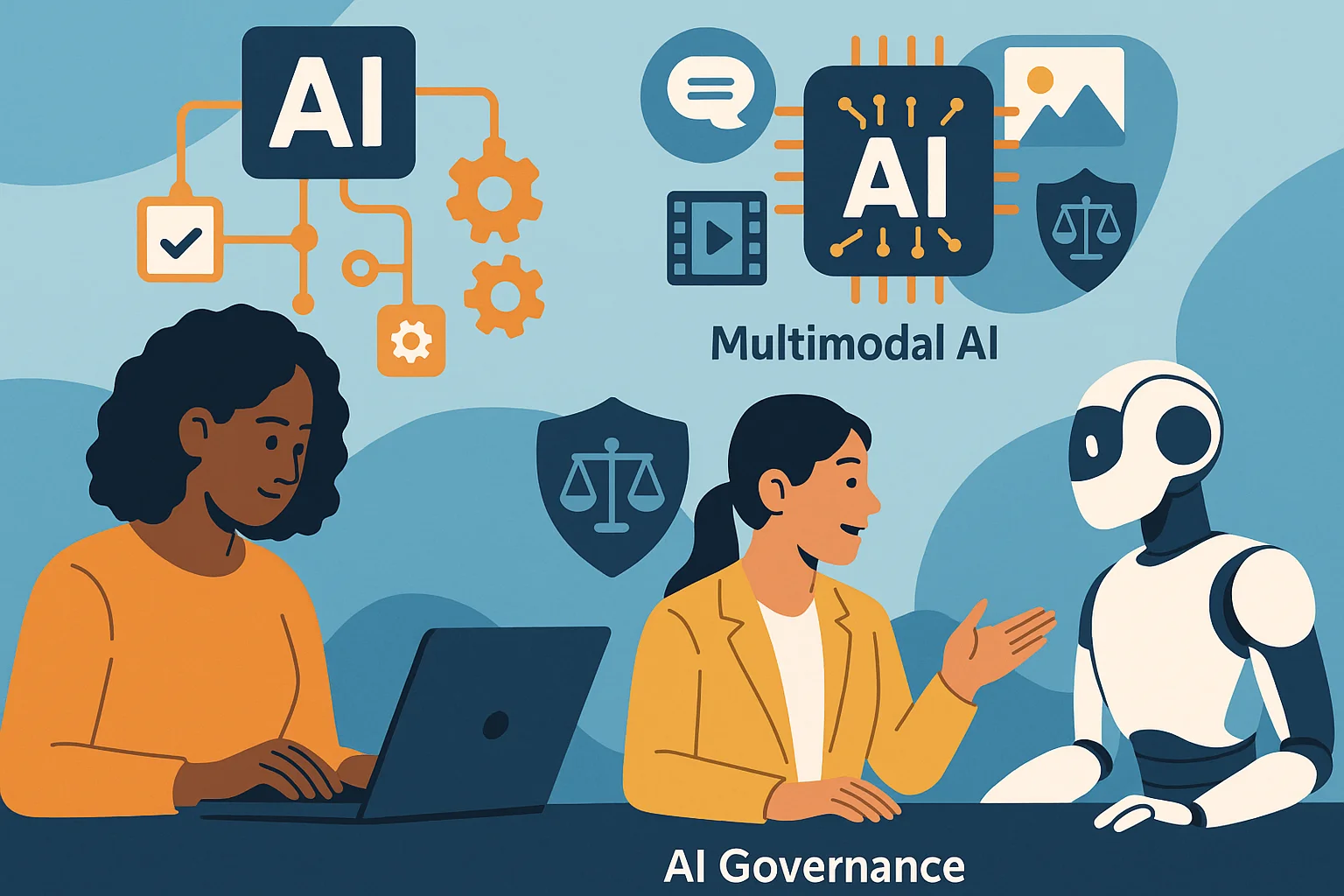
The Winning Blend: AI Skills + Human Strengths
AI doesn’t replace creativity, empathy, or strategic thinking — it enhances them when used smartly.
For example:
-
AI analyzes data patterns and predicts outcomes.
-
I interpret and communicate results, persuading stakeholders and applying them in real-world contexts.
✅ Employers seek candidates who:
Master AI tools
Lead projects
Make ethical decisions
Generate innovative ideas

How to Build AI Skills from Scratch — Even Without a Tech Background
You don’t need to be an engineer to master high-demand AI skills. I started with AI literacy courses that taught me practical applications:
- Applied AI Training – Choose courses with real-world case studies.
- Hands-on Tool Practice – Use ChatGPT, Midjourney, Claude, Perplexity.
- Personal Projects – Apply skills in volunteering or side projects.
- AI Networking – Join AI communities and forums.
Industry Spotlight: In-Demand AI Skills by Sector
-
Tech & Software Development 💻 – Machine learning, AI Ops, model optimization.
-
Healthcare & Life Sciences 🧬 – AI-assisted diagnostics, predictive analytics.
-
Finance & Banking 💳 – Fraud detection, credit scoring, risk analysis.
-
Marketing & Creative Industries 🎨 – Content generation, trend analysis, predictive segmentation.
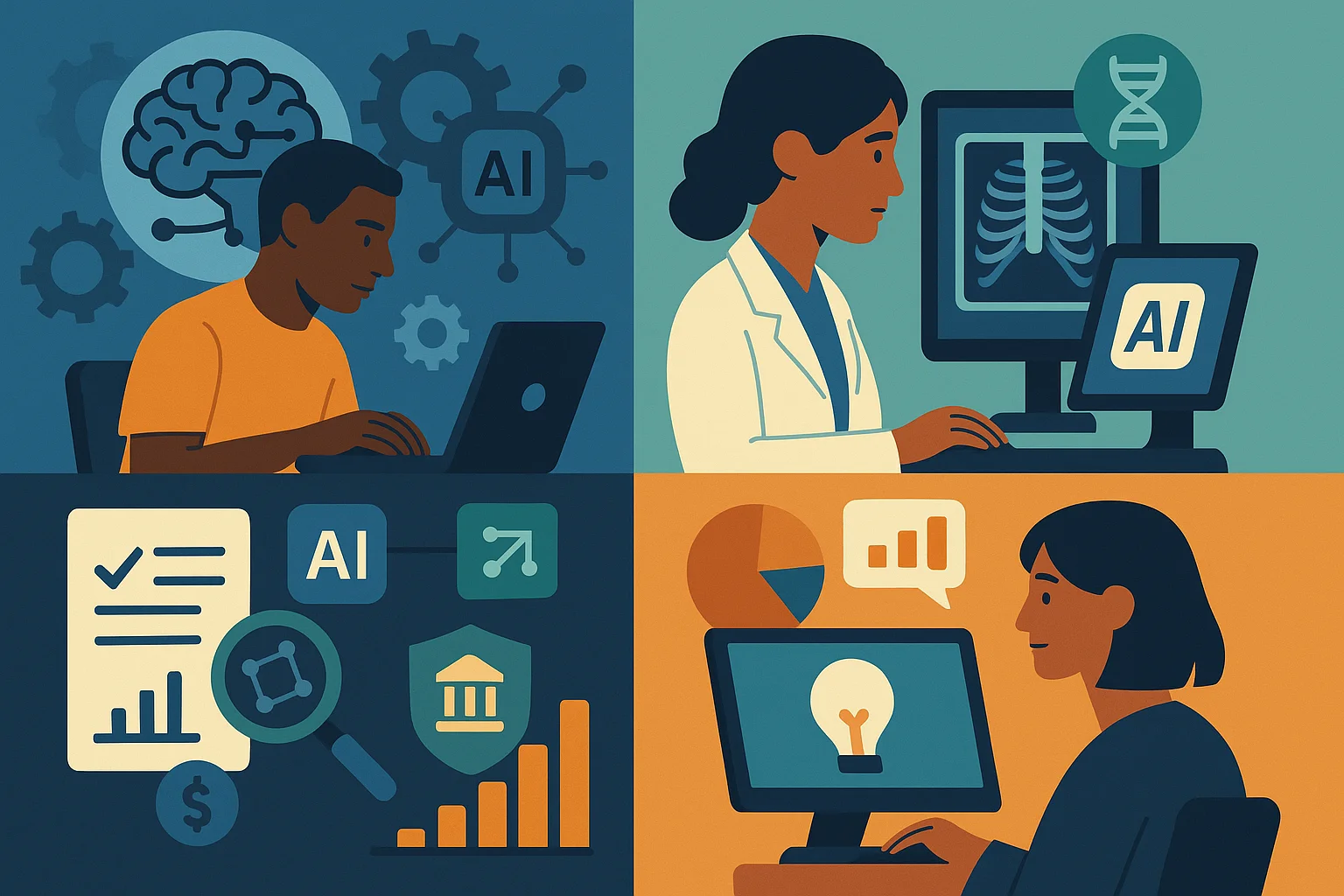
How Employers Assess Your AI Skills
Employers don’t just ask in interviews — they test you:
-
Practical challenges
-
Portfolios with AI projects
-
Real-world problem-solving tasks

The Career Multiplier Effect
For me, adopting AI skills doubled my productivity and opened doors to roles that didn’t exist just years ago. AI skills multiply career growth speed and impact.
FAQs About AI Job Skills in 2025
Q1: What AI skill is most in demand right now?
Prompt engineering and AI-powered data analysis are currently leading across industries.
Q2: Do I need to know coding to work in AI?
No. Many AI tools are no-code and focus on application rather than development.
Q3: How can I start learning AI if I’m a beginner?
Begin with free AI literacy courses, experiment with tools, and apply skills in small projects.
💡 Final Takeaway:
Employers in 2025 want professionals who combine AI mastery with human intelligence. If you can bridge technology and business value, you won’t just stay relevant — you’ll be indispensable.
